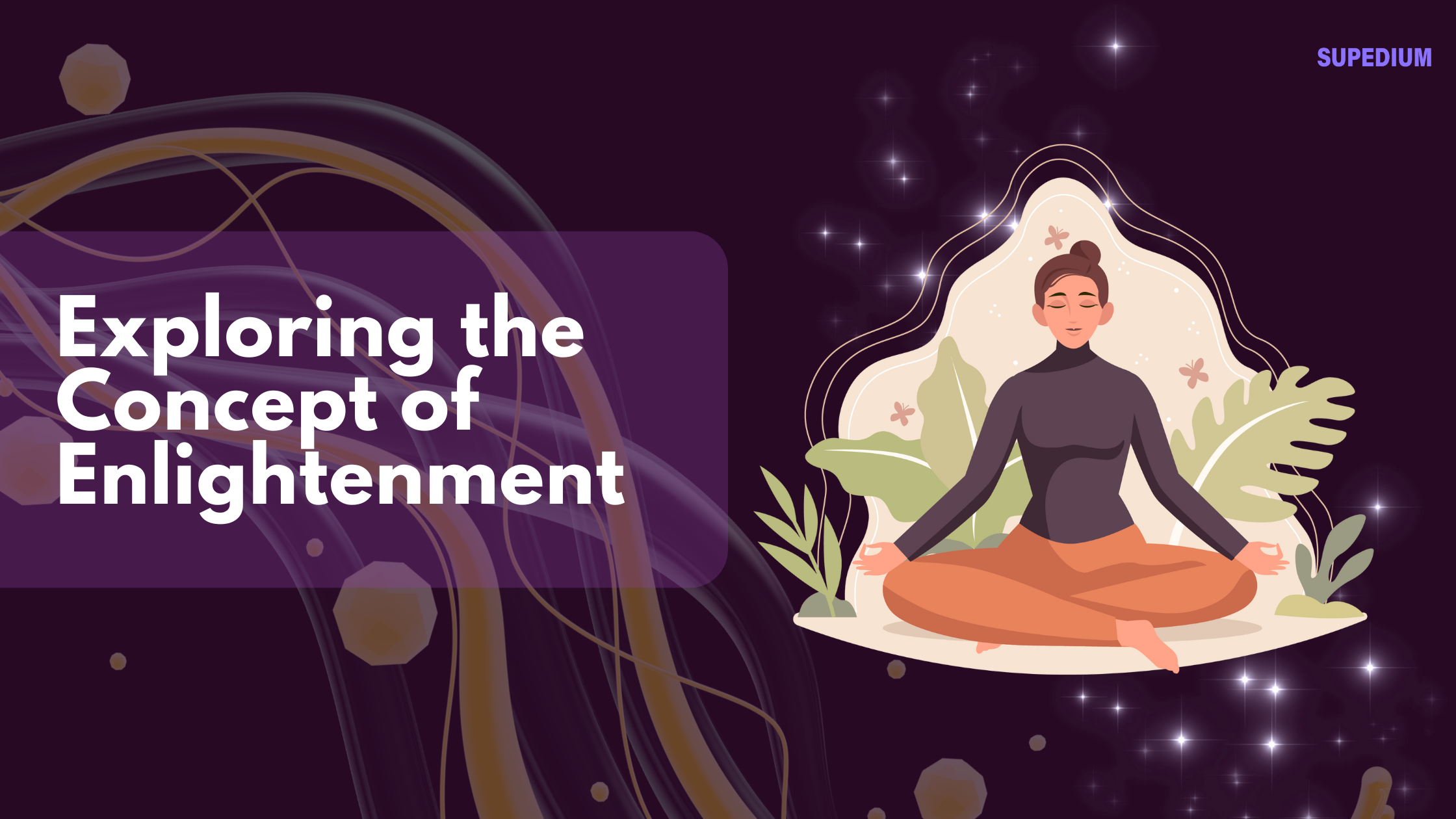Table of Contents
![]()
Introduction
Definition of Enlightenment
Enlightenment is a multifaceted concept that varies across different contexts. At its core, enlightenment generally refers to a profound understanding or insight that transcends ordinary awareness. It often involves a transformative realization that leads to a deeper sense of clarity or wisdom. This concept is prominent in both philosophical and spiritual realms, where it signifies the attainment of a higher state of awareness or understanding.
Importance of Understanding Enlightenment
Understanding enlightenment is crucial for both historical and contemporary reasons. Historically, the Enlightenment period in the 18th century laid the foundations for modern Western thought, emphasizing reason, individualism, and secularism. In a contemporary context, the quest for enlightenment continues to influence various fields, including personal development, spirituality, and even scientific inquiry. By exploring the concept of enlightenment, we gain insights into its impact on human progress and personal growth.
Historical Perspectives on Enlightenment
The Age of Enlightenment (18th Century Europe)
The Age of Enlightenment, also known as the Age of Reason, was a pivotal period in European history marked by a surge in intellectual and cultural development. Key figures of this era included:
- Voltaire: A vocal critic of the status quo, Voltaire championed freedom of speech, separation of church and state, and intellectual rigor.
- John Locke: His theories on government and the nature of human understanding laid the groundwork for modern democratic thought and empirical research.
- Jean-Jacques Rousseau: Rousseau’s ideas on the social contract and the inherent goodness of humans contributed to political philosophy and educational reform.
- Immanuel Kant: Kant’s work on epistemology and ethics emphasized the role of reason in understanding and achieving moral principles.
The core ideas of the Enlightenment included reason, individualism, secularism, and the scientific method. This period marked a significant shift from religious and traditional authority towards a focus on human reason and empirical evidence.
Religious and Spiritual Traditions
In addition to Western philosophical traditions, enlightenment has profound roots in various religious and spiritual contexts:
- Eastern Traditions:
- Buddhism: Enlightenment in Buddhism, known as Nirvana, represents the ultimate liberation from the cycle of birth and rebirth (samsara). Achieving enlightenment involves understanding the Four Noble Truths and following the Eightfold Path.
- Hinduism: Moksha in Hinduism denotes liberation from the cycle of rebirth and union with the divine. Key texts like the Bhagavad Gita emphasize the importance of self-realization and divine consciousness.
- Western Traditions:
- Christian Mysticism: Mystics such as Teresa of Ávila and John of the Cross explored theosis, the process of becoming one with God. Their writings describe spiritual experiences of divine union and transformation.
- Sufism in Islam: Sufism presents enlightenment as a journey towards self-realization and closeness to God. It emphasizes mystical experiences and inner purity.
Philosophical Theories and Models
Enlightenment in Western Philosophy
The Enlightenment era fostered significant developments in Western philosophy:
- Rationalism vs. Empiricism:
- Descartes’ Rationalism: René Descartes advocated for the use of reason as the primary source of knowledge, famously declaring, “I think, therefore I am.”
- Hume’s Empiricism: David Hume emphasized the role of sensory experience and skepticism about knowledge beyond immediate perception.
- The Role of Enlightenment in Modern Philosophy:
- Kant’s Critique of Pure Reason: Immanuel Kant sought to reconcile rationalism and empiricism, proposing that while knowledge begins with experience, it is shaped by innate cognitive structures.
- Influence on Political Theory and Liberalism: Enlightenment principles influenced the development of democratic governments and the promotion of individual rights.
Comparative Analysis with Eastern Philosophies
Comparing Western and Eastern philosophies reveals both similarities and differences in their approaches to enlightenment:
- Similarities: Both traditions emphasize personal transformation and the pursuit of deeper truths. They recognize enlightenment as a state of greater awareness and understanding.
- Differences: Western philosophies often focus on rational and empirical methods, while Eastern traditions emphasize meditation, introspection, and spiritual practices.
Psychological and Cognitive Aspects
Cognitive Models of Enlightenment
Cognitive science offers insights into the mental processes associated with enlightenment:
- Role of Awareness and Consciousness: Enlightenment involves a heightened state of awareness and altered consciousness, where individuals experience a deeper understanding of reality.
- Insights from Cognitive Science: Studies in cognitive science explore how changes in brain function and perception contribute to transformative experiences associated with enlightenment.
Psychological States Associated with Enlightenment
Enlightenment is often linked to specific psychological states:
- Altered States of Consciousness: Practices such as meditation and mystical experiences can lead to altered states, characterized by a sense of unity, transcendence, or profound insight.
- Emotional and Psychological Transformations: Achieving enlightenment may involve significant changes in emotional well-being, including increased compassion, equanimity, and a reduced sense of ego.
Practical Approaches to Achieving Enlightenment
Spiritual Practices
Various spiritual practices aim to facilitate enlightenment:
- Meditation Techniques: Techniques such as mindfulness meditation, transcendental meditation, and loving-kindness meditation are used to cultivate awareness and insight.
- Mindfulness and Awareness Practices: Practices focusing on present-moment awareness help individuals gain clarity and understanding.
Philosophical Practices
Philosophical approaches to enlightenment emphasize:
- Rational Inquiry and Critical Thinking: Engaging in rigorous reasoning and questioning can lead to deeper understanding and insights.
- Ethical Living and Personal Growth: Living ethically and pursuing personal growth are seen as pathways to achieving a higher state of awareness.
Contemporary Interpretations and Criticisms
Modern-Day Enlightenment Movements
In contemporary society, several movements reflect evolving interpretations of enlightenment:
- Secular Humanism: This movement emphasizes human values and reason without relying on religious or spiritual frameworks.
- New Age Spirituality: New Age practices integrate elements from various traditions, focusing on personal transformation and holistic well-being.
Criticisms and Challenges
Despite its positive aspects, the concept of enlightenment faces criticisms:
- Misinterpretations and Misapplications: Enlightenment concepts are sometimes misinterpreted or appropriated in ways that dilute their original meaning.
- Cultural and Historical Contexts: Understanding enlightenment requires attention to its cultural and historical contexts, as interpretations can vary widely across different societies.
Case Studies and Examples
Historical Figures Who Embodied Enlightenment
Several historical figures are emblematic of enlightenment principles:
- Mahatma Gandhi: Gandhi’s principles of non-violence and self-realization reflect his deep understanding of ethical and spiritual truths.
- Albert Einstein: Einstein’s contributions to science and his philosophical reflections on the nature of reality demonstrate a profound grasp of both empirical and conceptual knowledge.
Contemporary Examples
Modern-day figures who exemplify enlightenment principles include:
- Public Intellectuals and Thought Leaders: Individuals such as Noam Chomsky and Yuval Noah Harari engage in critical thinking and public discourse that reflect enlightened perspectives.
- Modern Spiritual Leaders: Figures like the Dalai Lama and Eckhart Tolle offer insights into spiritual practices and personal growth.
Conclusion
In summary, the concept of enlightenment encompasses a rich array of historical, philosophical, and spiritual dimensions. From its origins in the Age of Enlightenment to its various interpretations in religious and contemporary contexts, enlightenment remains a significant concept that influences both personal and societal development. By examining its diverse aspects and practical approaches, we gain a deeper appreciation for its relevance and potential for fostering greater understanding and transformation.
Share This





Be the first to comment